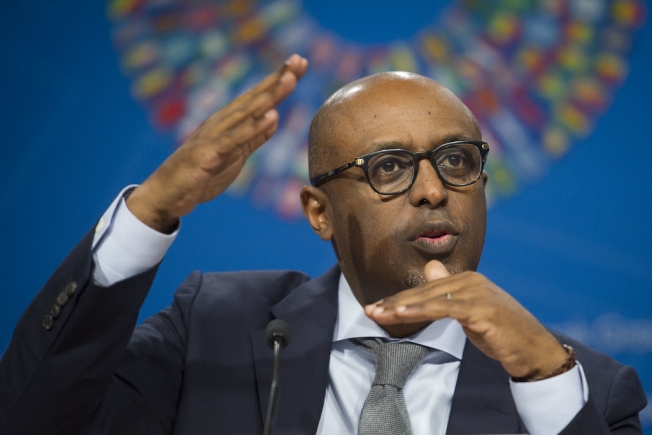
Be firm in negotiations with non-Eurobond holders — IMF advises Ghana
The International Monetary Fund (IMF) has advised the Government of Ghana to stay strong and firm as it negotiates with its external commercial private banks and contractors to restructure debts of about $2.8 billion.
Speaking at a press briefing on its latest Sub-Saharan Africa Regional Economic Outlook report, the Director of African Department of the IMF, Abebe Aemro Selassie, urged the government to push for a deal that was consistent with the parameters of its three-year programme with the fund.
He said although Ghana has made some remarkable progress in its external commercial debt restructuring, there remains a significant amount of debt with non-Eurobond holders that needs to be agreed on.
“We hope that progress can be made on that in the coming weeks and months. I think the government needs to stay strong and make sure that it gets the best deal that it can -- for the people of Ghana-- and we hope they do so,” he stated.
Following the successful restructuring of its Eurobonds, the Government of Ghana has now turned its attention to external commercial private banks and contractors for a possible restructuring of its $2.8 billion debt.
The Minister of Finance, Dr Mohammed Amin Adam, at the last monthly economic update, said the government has sent an offer to this set of creditors through its advisors.
He said the government had engaged physically with the creditors in Ghana and China and hopefully they would accept the terms being proposed by the government.
GDP growth revision
Mr Abebe Aemro Selassie also indicated that the IMF has revised Ghana’s GDP growth upwards to 4% from the initial 3%. He said the new revised GDP was, however, not captured in the latest economic outlook report due to the deadlines for putting up the report.
“I think being with the press, you understand deadlines, and the deadline for the submission of the World Economic Outlook numbers, because we have to do it for the entire membership, was mid-to late August. “So, at that time, our projections were 3% in Ghana.
“The team subsequently went out to Accra, did updates and projections and I think we are now projecting closer to 4%,” he said. He said Ghana was on course in its economic recovery, with the reforms beginning to bear fruit.
“Ghana has gone through a really wrenching period of macroeconomic instability and decided to move forward with a comprehensive set of reforms.
“I think these reforms are beginning to bear fruit, which is the growth numbers we're seeing,” he said.
He urged the government to continue to strike a healthy balance between the need to address all the development spending needs while maintaining debt sustainability.
He said this would require maintaining modest levels of fiscal deficits, especially in an election year.
Mr Selassie said this would be critical to making sure that going forward, Ghana can have a healthy macroeconomic situation.
He said economic growth in Sub-Saharan Africa remains subdued, particularly in per capita terms, as the fund is projecting a growth of 3.6% for the region, expected to rise to 4.2% in 2025.
He noted that this space was not sufficient to reduce poverty or recover the lost ground in recent years, much less the developmental challenges that countries have been facing.
“We are still far below the 6.7% growth rates the region enjoyed until about a decade ago. But as always, it is important to highlight the considerable differences in circumstances across the region,” he said.
He said the fund was also seeing some improvement in macroeconomic imbalances. Specifically, inflation continues to decline; budget deficits have begun to narrow, reverting to pre-crisis levels; and debt-to-GDP ratios are also stabilising, albeit at a high level.
He said the political and social environment facing governments as they have been implementing these difficult reforms remains difficult.
“The cost-of-living crisis over the last several years that we've been talking about around the world has been particularly acute in Sub-Saharan Africa.
“This, of course, has intensified strains on households that spend a very large share of income, relative to other regions, on food, for example,” he added.
He said governments were also making fiscal adjustments at a time when financing remains difficult, adding that all of these are putting quite a lot of strain on government services and the population.